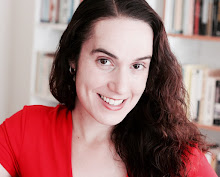Nothing which turns its back totally on human accomplishment because of human failure can work well enough. Nothing which is totally subjective and ignores the lessons of human experience can work well enough.
—Eugene Lipman
Sinai Sermons
Sinai Sermons
Thirteen years ago yesterday, my saba died of an especially brutal and quick form of brain cancer.
Over the course of six months, he went from a learned scholar with a fuzzy face, a big round belly, and a mind brilliant to the point of intimidation, to a silent and delicate old man in a white bed. Propped up on pillows.
We lived about eight hours away from my grandparents' house in Chevy Chase, MD, just outside D.C. Given the distance and our school schedule, we weren't able to see Saba much during his illness. Regular updates came in from Savta and Dad.
I don't remember much about those six months. I was 15, focused on my own tiny world of college applications and squash season, and I'd never experienced any kind of close death.
Three memories of Saba's cancer:
1. Sitting on his bed at the hospital just before he died, saying goodbye, feeling equally sure and unsure he could hear me. His eyes sad and heavy, seeking to communicate, resigned to the inabilities of his mind and voice.
2. At his funeral, hugging a family friend I rarely saw, grateful for her touch and her obvious deep sadness. Thinking that burial was surreal but necessary, the ultimate form of closure.
3. Reading his obituaries in The New York Times and Washington Post, feeling proud but disconnected. I learned about all his titles, honors, community work, rabbinical work, and war work from those articles. He used to bring us stationery from the White House, but somehow I didn't connect that with his having been invited there.
Saba was difficult and accomplished, funny and complicated, regimented and educated and heroic and demanding, the king of pontification. He loved me and my brother and cousins so much that I used to describe him as my marshmallow grandpa. I was too little to be drawn into discussions or arguments or lessons. I just remember that giving him a hug felt like hugging the Michelin Man, squishy and safe.
Saba advised several U.S. presidents. He marched with Dr. King. He raised hell alongside the ACLU. He wrote books. He smuggled Jews across borders to safety in postwar Germany. He believed powerfully in sins and mitzvot, in spirit and justice, struggling to find them both in a world whose problems he analyzed weekly in sermons from his pulpit. He was full of emotional blockades that only started to release in the last years of his life.
Saba let me name his brown pickup truck Figaro. He put on a dirty undershirt and work pants, took Figaro to the acre of farm he tended, filled it up with tomatoes and carrots and whatever else he could produce, and delivered them to local shelters for women and children who knew him only as the Vegetable Man.
Years ago, I opened a novel from his library and discovered that my signature looks just like his, three capital letters and a scrawl at the end. So does my father's.
I never knew my saba as an adult, when he might have kicked my ass at Scrabble and taught me things I could carry away. I don't remember our conversations or any advice he may have given a little girl.
It's common, this hole, but each January I stop and remember that it can ache all the same.

No comments:
Post a Comment